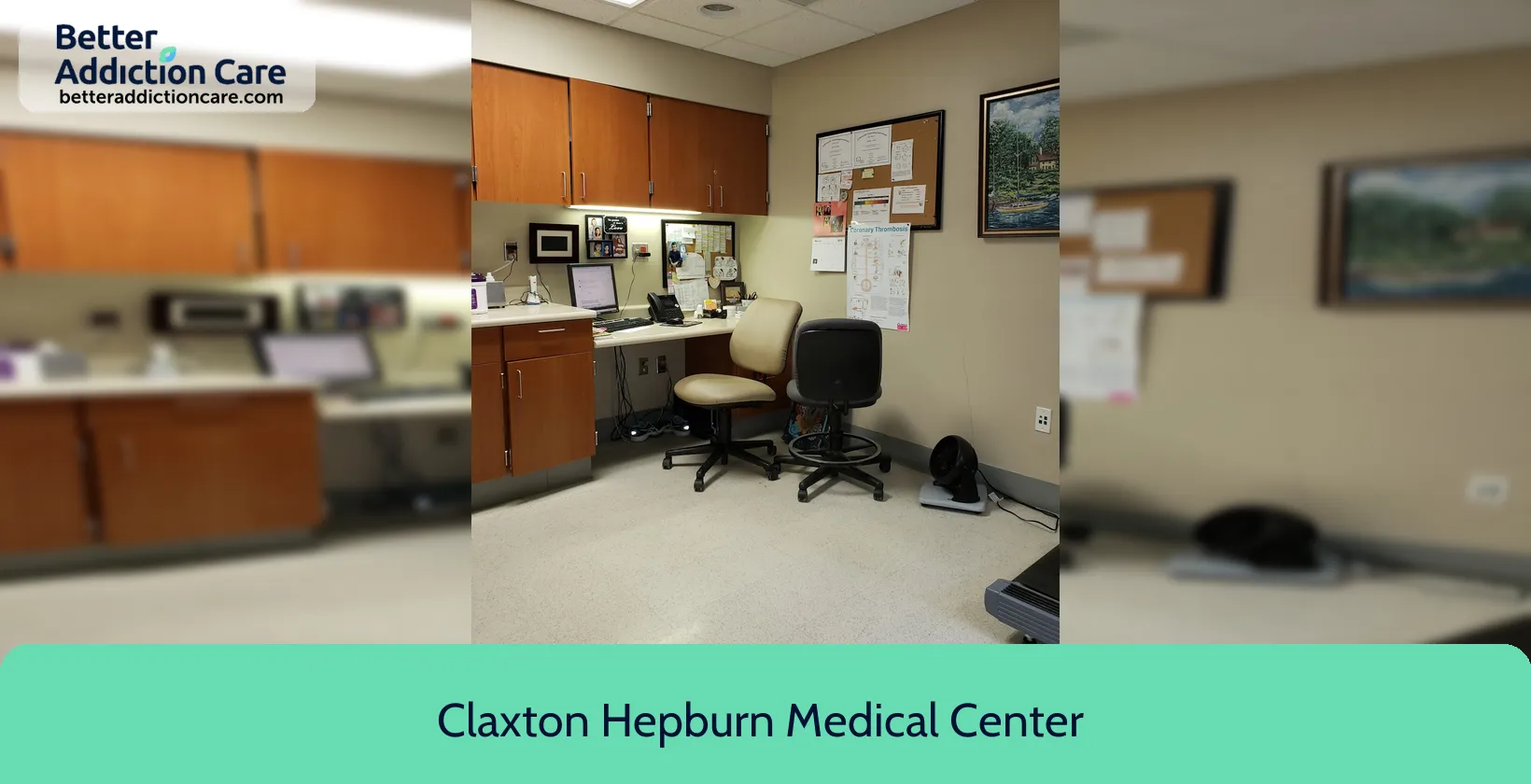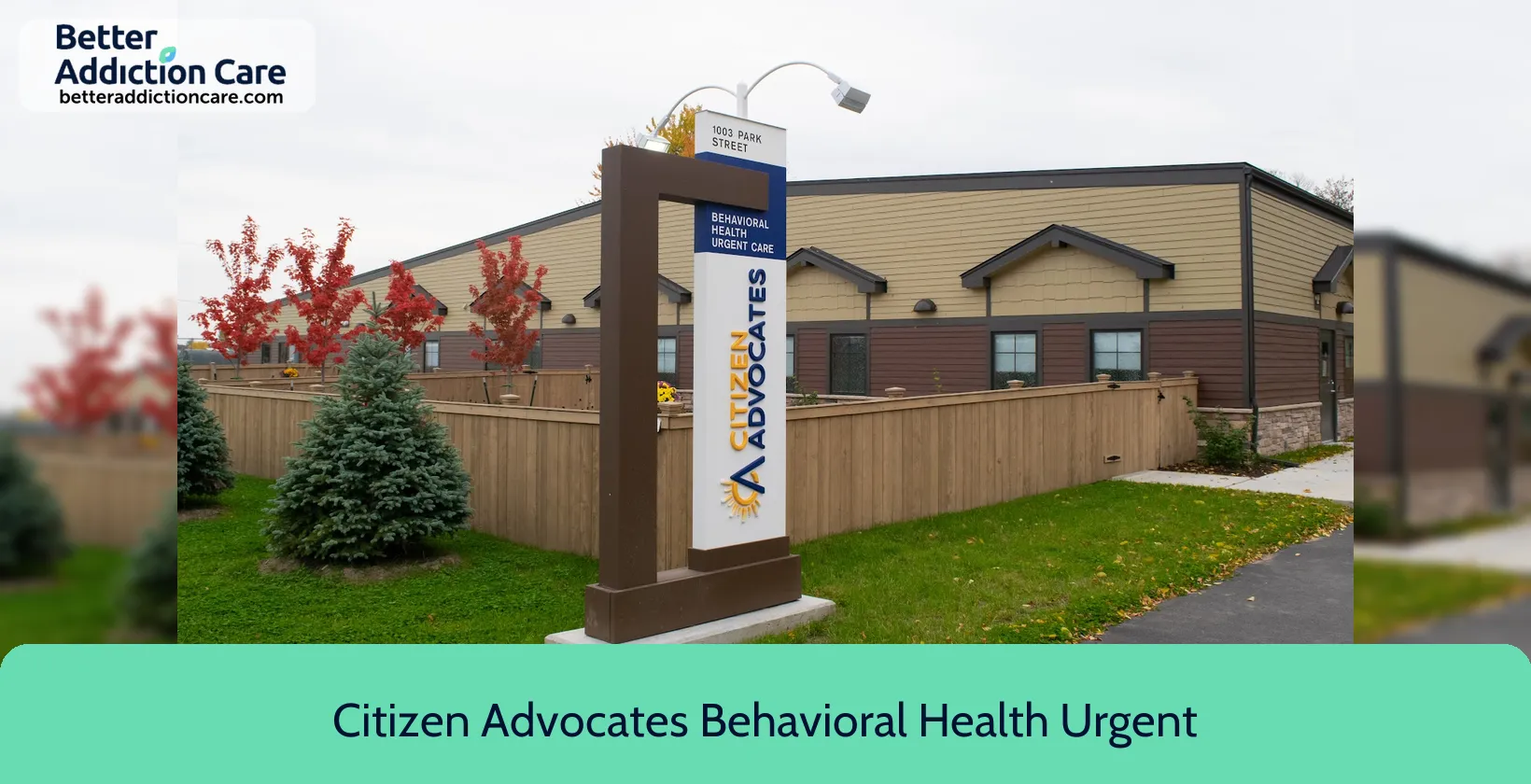St Lawrence Addiction Treatment

Overview
St. Lawrence Addiction Treatment Center, located in Ogdensburg, New York, offers comprehensive inpatient rehabilitation treatments to adults battling with chemical dependency and addiction. The facility, which welcomes both men and women, provides a structured and friendly environment that promotes rehabilitation and healing. Its programs include inpatient rehabilitation, detoxification services, and aftercare support, ensuring that patients get ongoing care throughout their recovery.
The clinic employs a number of evidence-based treatment approaches, including Cognitive Behavioral Therapy (CBT), exercise therapy, anger management, and individual and group counseling. St. Lawrence Addiction Treatment Center, with its interdisciplinary team of healthcare specialists, focuses on its clients' physical and psychological well-being, with the goal of fostering long-term recovery. The clinic is accredited by the Commission on Accreditation of Rehabilitation Facilities (CARF), which ensures high quality care in addiction treatment.
St Lawrence Addiction Treatment at a Glance
Payment Options
- Cash or self-payment
- Medicaid
- State-financed health insurance plan other than Medicaid
- Private health insurance
- Federal, or any government funding for substance use treatment programs
Assessments
- Screening for tobacco use
- Comprehensive mental health assessment
- Comprehensive substance use assessment
- Interim services for clients
- Outreach to persons in the community
Age Groups
- Young adults
- Adults
- Seniors
Ancillary Services
- Case management service
- Integrated primary care services
- Early intervention for HIV
- Mental health services
- Social skills development
Highlights About St Lawrence Addiction Treatment
7.40/10
With an overall rating of 7.40/10, this facility has following balanced range of services. Alcohol Rehabilitation: 8.00/10, Drug Rehab and Detox: 7.23/10, Insurance and Payments: 6.67/10, Treatment Options: 7.70/10.-
Alcohol Rehabilitation 8.00
-
Treatment Options 7.70
-
Drug Rehab and Detox 7.23
-
Insurance and Payments 6.67
Accreditations
Commission on Accreditation of Rehabilitation Facilities (CARF):

CARF accreditation is a prestigious recognition granted to rehabilitation and human service organizations. It signifies that an organization meets high-quality standards, having undergone a rigorous evaluation process. CARF accreditation boosts an organization's credibility and ensures top-notch care for individuals with disabilities, injuries, or healthcare needs.
Registration: 38041
SAMHSA certification for opioid treatment program (OTP):
SAMHSA's Opioid Treatment Programs (OTP) Accreditation is a rigorous recognition process, signaling an OTP's commitment to high-quality care for those with opioid use disorders. It assures patients, families, and the community that the program adheres to evidence-based practices, maintains a safe environment, and employs qualified staff. This accreditation represents a commitment to addressing the opioid epidemic and promoting recovery, symbolizing quality and accountability in opioid addiction treatment.
State department of health:

Government agencies issue State Licenses, granting permission to rehabilitation organizations to conduct their business operations lawfully within specific geographic regions. Generally, the particular rehabilitation programs offered by a facility and its physical location dictate the necessary licenses needed for legal operation.
Registration: 90005
Treatment At St Lawrence Addiction Treatment
Treatment Conditions
- 24-Hour Clinical Care
- Alcoholism
- Substance use treatment
Care Levels
- Hospital inpatient treatment
- Short-term residential
- Hospital inpatient/24-hour hospital inpatient
- Aftercare
- Detoxification
Treatment Modalities
- Cognitive behavioral therapy
- Telemedicine/telehealth therapy
- Substance use disorder counseling
- Trauma-related counseling
- Smoking/vaping/tobacco cessation counseling
Ancillary Services
Languages
- English
Additional Services
- Pharmacotherapies administered during treatment
- Mentoring/peer support
- Breathalyzer or blood alcohol testing
Pharmacotherapies
- Medications for HIV treatment
- Medications for Hepatitis C treatment
- Medications for pre-exposure to prophylaxis
Special Programs
- Clients who have experienced trauma
Get Help Now
Common Questions About St Lawrence Addiction Treatment
Contact Information
Other Facilities in Ogdensburg

6.68

7.33
DISCLAIMER: The facility name, logo and brand are the property and registered trademarks of Citizen Advocates Behavioral Health Urgent Care Center, and are being used for identification and informational purposes only. Use of these names, logos and brands shall not imply endorsement. BetterAddictionCare.com is not affiliated with or sponsored by Citizen Advocates Behavioral Health Urgent Care Center.
